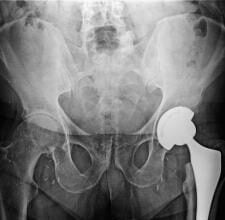On The Health Care Blog, veteran analyst Vince Kuraitis reviews a report from the consulting firm Oliver Wyman (OW), arguing that the trend toward reconfiguring health systems to deliver more accountable care is more widespread than any of us suspect.
On The Health Care Blog, veteran analyst Vince Kuraitis reviews a report from the consulting firm Oliver Wyman (OW), arguing that the trend toward reconfiguring health systems to deliver more accountable care is more widespread than any of us suspect.
“The healthcare world has only gotten serious about accountable care organizations in the past two years, but it is already clear that they are well positioned to provide a serious competitive threat to traditional fee-for-service medicine. In “The ACO Surprise,” our analysis finds that 25 to 31 million Americans already receive their care through ACOs-and roughly 45 percent of the population live in regions served by at least one ACO.”
OW provides a well-reasoned analysis and conclusions, but I’m skeptical. In discussions with health system executives around the country, I hear some movement toward change, but relatively few organizations are materially turning their operations in a different direction. The specter of policy change is looming, but it is still abstract. As I’ve described before, market forces are intensifying, but they’re mostly still scattered and immature.
Fee-for-service remains the prevailing paradigm, and there is no palpable threat to the health care excess that is business-as-usual. Several health system CFOs have told me: “Why should we take less money until we have to?”
There’s no question that Medicare’s ACO programs have the bulls-eye on reimbursement for health systems, which are a convergence point for a large percentage of appropriate and inappropriate health care costs.
But there is a silver lining. American health care is so replete with waste – on the order of half or more of all health care expenditures – that any system that tries could deliver dramatically lower costs and improved outcomes. Health systems that drop costs say, 20 percent, while maintaining or improving quality would bask in immediate market recognition and gain significant market share. In the economic purgatory in which these organizations now live – reduced procedural volumes, impending Medicare and commercial plan cuts – this path seems like a no-brainer, especially if it can also create the discipline that propels the organization successfully into the next paradigm.
I discussed this with Steve Blumberg, a senior health system executive at AtlantiCare in New Jersey and a particularly astute observer. Here’s his take:
“When it comes to preparing for the inevitable change away from fee for service reimbursement and toward risk and value, I think there are four kinds of health systems. The first few are going through the agony now of laying in the tools and trying to shift the culture so they can change utilization and cost patterns. They’re focused on weathering the transition and being here for the long term.”
“The second understand the problem intellectually, but haven’t wholeheartedly embraced the problems and their solutions. To show they’re doing something, they’re focusing on changing things at the margins, and are stashing away cash as fast as they can. They expect that, as time passes, they’ll be more easily able to buy their way into a capable future.”
“The third are waiting. They’re holding on to the present, and can’t see any real advantage in undertaking expensive restructuring that can only result in lower volumes and per patient revenues.”
“The fourth believe the game’s over, and they’re busy trying to get acquired.”
This is an alternative interpretation to the OW report. The vast majority of health systems are either making only nominal changes, keeping their powder dry until they’re forced to act, hoping against hope that nothing will really change, or trying to get out and make it someone else’s problem. Most ACOs are, at this point, accountable in name only. It is difficult to identify concrete examples of systems delivering the substantially better performance that we know is possible.
Getting real change will require something else, incentives with teeth, and that means changing how we pay for care. It is unreasonable to expect health systems to voluntarily shift away from a payment model that is currently in their economic interests. It is more reasonable to change payment to one that is fair to the health care industry, but that serves the rest of our interests by driving appropriateness rather than waste. Health systems will change in the ways we need them to if we give them a reason to follow the money in a different direction.
Even so, it is hard to imagine that those changes can emerge in direct opposition to the health industry’s tremendous lobbying influence. But when someone as connected and careful as former VA turnaround artist Ken Kizer, MD stands up in front of a national conference, as he did at last week’s ASCO meeting, and says, “Payment reform is inevitable. Fee for service is dead,” it raises the possibility that he knows something the rest of us don’t.






